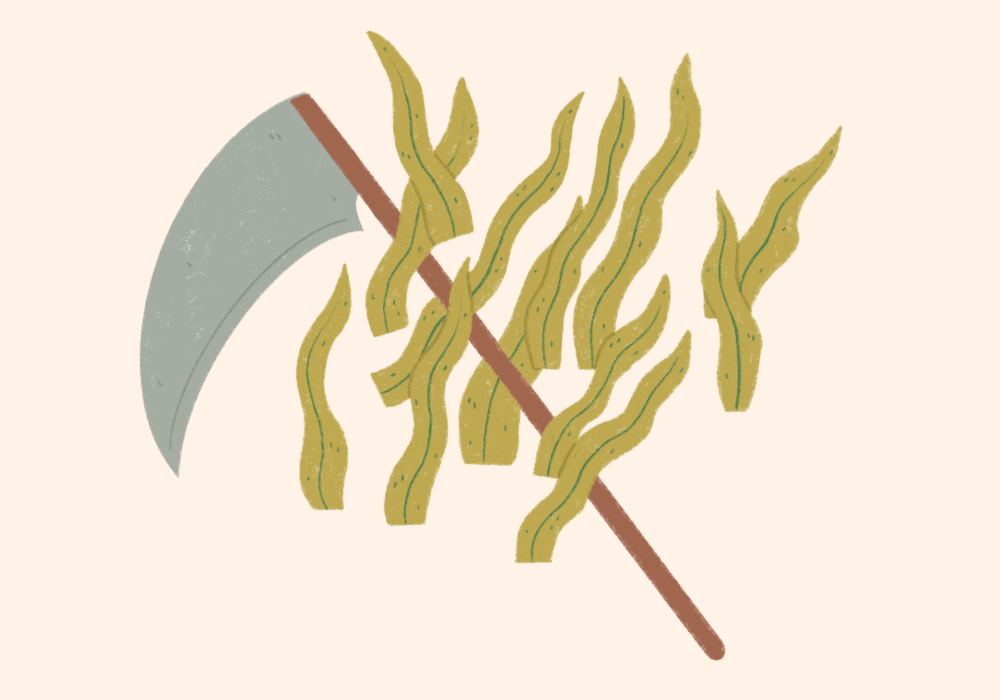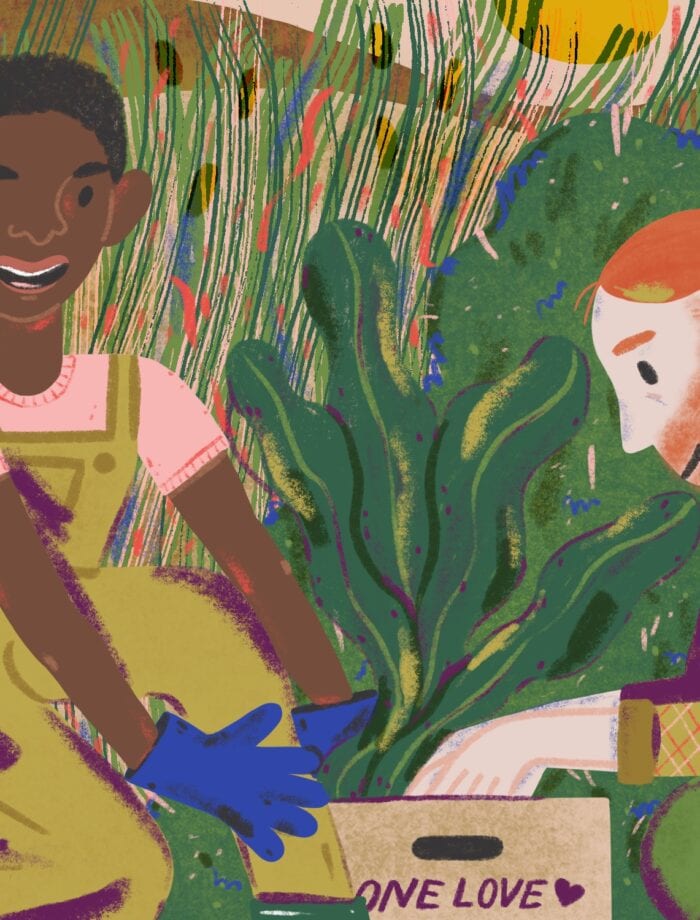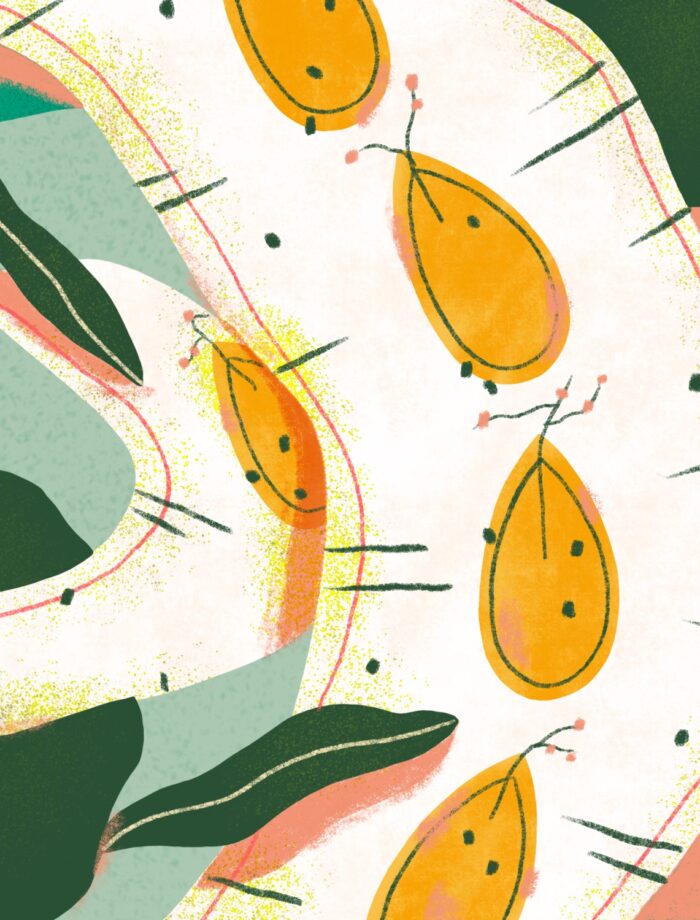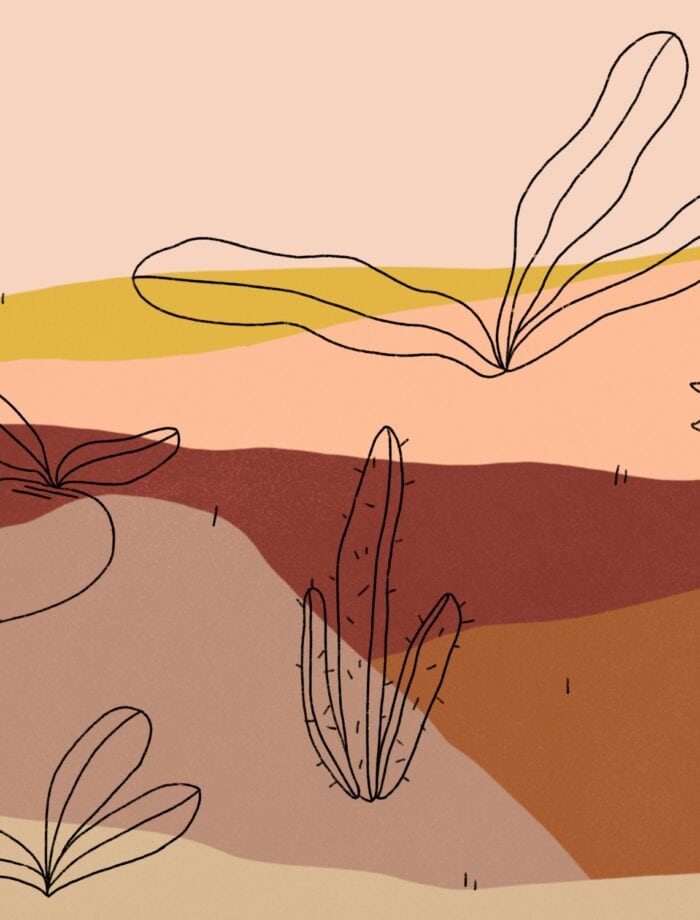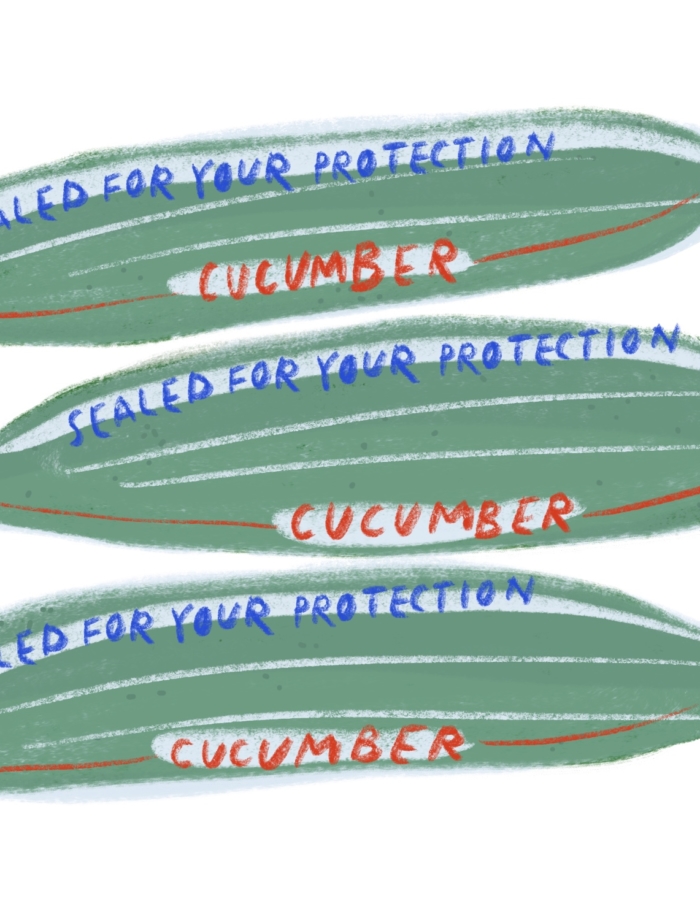Angelique Taylor and David ‘Kip’ Ritchey are farmers of the future—they imagine an agricultural landscape that generates more nutritious food, more shared resources, and more food equity throughout the country. Their farm in northern Florida, Smarter by Nature, is proof that it’s possible.
Angelique and Kip are under no illusion that the path to this future will be simple or quick, but they are forging it with joy and optimism anyway. Get thee to SmarterByNatureTV on your nearest YouTube browser for a taste (Did you know that luffas grew like this? I sure didn’t!).
I learned about how great an impact small farms and passionate farmers can have both locally and on a broader scale from my conversation with this duo. I hope you find it as inspiring as I did!
How did you get started as farmers?
Kip: We started gardening about two years ago just in our spare time, but we were spending so much time doing it that we eventually decided to create a business out of our passion. We love interacting with people, so a lot of our farming involves facilitating the learning space with others. Members of the community come to the farm and get a hands-on experience of the sustainable food movement.
Angelique: We’ve had to be really resourceful. We’re still farming on borrowed land—it’s currently owned by a nonprofit—and just rolling with the space and tools we have.
Sustainability has been a part of your mission from the beginning. Can you tell me about where that came from?
Angelique: I studied environmental science in college, and I’ve always been interested in preserving and restoring natural landscapes. As soon as I realized that I could facilitate that process of restoration and preservation by growing food I knew it was something I wanted to pursue.
We think about conservation on multiple levels—from our water usage to building microbes in the soil—it’s all systematic.
On our farm, sustainability is the guiding principle for how we cultivate the land, the amount of space that we use, and how we care for the soil. We’re always thinking about how we can give back to the land and cultivate diversity in our landscapes. We think about conservation on multiple levels—from our water usage to building microbes in the soil—it’s all systematic. We’ve learned from farmers all over the world and built our system using the practices that line up with our ethics.
Kip: Right now one of the biggest threats to agriculture in this country is monoculture. We’re basically seeing acres and acres of just corn, wheat, and soy. And that weakens the defense system of the soil because it causes an imbalance of minerals and microbes. We counter that by planting a diversity of crops on our farm and using integrated pest management instead of chemical pesticides.
You mentioned that Smarter By Nature also has an education component. What does that look like?
Angelique: Every Friday and Sunday we have volunteer days. Most of our volunteers haven’t had much experience gardening, so we take them through the tasks we would normally do. We might be harvesting, or planting, or putting up a greenhouse. We try to give them skills that they can then apply to gardening at home.
When people start learning about growing food, they start appreciating the time and work that it takes, so that creates a higher value in their minds, and then they begin to treat themselves with that same value when they eat that food, and they take pride in it.
One family was just telling us about how they thought they wouldn’t be able to plant in their front yard because of how much rain it gets, but they decided to build raised beds and have been growing food ever since. And another volunteer who comes frequently told us she’s started to cultivate her mom’s backyard, they named the garden and now they’re planting together.
Kip: People of all ages come, we have families, young people, moms, elders… To me that component is so important because the process of growing food and the value of food is undermined in our society. People are used to getting things fast. When you purchase something at the supermarket you have no idea how long it took to make it or how it got there. When people start learning about growing food, they start appreciating the time and work that it takes, so that creates a higher value in their minds, and then they begin to treat themselves with that same value when they eat that food, and they take pride in it.
We’ve hosted workshops on growing food at universities and in our community, as well as engaging on social media. We get to speak to young people from all over online and we love to share information that way.
Every week we also bring our food to Frenchtown Farmer’s Market, which is a local market serving a community that has very little access to fresh produce otherwise. A lot of our customers there may not have ever been exposed to things like kale or oyster mushrooms, and they get to come to this market around the corner from their homes and purchase produce like that and talk to the farmers that grew them.
What do you think a sustainable food system could look like with the leadership of folks like you who are committed to being stewards of the earth and your communities?
Kip: More communication and more interdependence between organizations. An example of that is how we provide mushrooms to the local community. We don’t grow the mushrooms ourselves, we get oysters, shitakes, and lion’s manes from a local grower who sells to restaurants. We’re able to buy directly from him and then sell them at an affordable price.
If you want to support local agriculture, do your shopping at a farmer’s market or a community co-op.
If more people started embracing the small scale agriculture movement, we would have more businesses helping each other and putting our networks together. It wouldn’t be about the individual farmer, it would be about the community, the city, or the region that the farmers are in. In order to thrive you have to have a system that you can be a part of.
What are some ways we can support you and farmers like you to help create this system of shared resources?
Kip: It’s a great time on social media right now to find farmers who are sharing their stories. We learned a lot from watching YouTube and we still meet farmers through YouTube and Instagram.
If you want to support local agriculture, do your shopping at a farmer’s market or a community co-op. Go to your nearest grocery store and start asking them where they get their produce from. Having any type of dialogue to gain information about local agriculture is a great place to start.
To support Smarter By Nature directly you can follow us on Instagram, subscribe to our YouTube channel, and join our Patreon where we post exclusive videos about our process and subscribers can ask us questions.
How do you hope to see Smarter By Nature grow in the future?
Angelique: We want to continue to fill out the land that we have right now, and eventually we’d like to purchase land so we can have a farm of our own (donate to help them get there!). And then just continuing to share growing methods and starting people off who haven’t grown food before.
If someone reading this has never grown food before, how would you recommend they start?
Kip: So much information is available online. If you look up small scale farming or sustainable growing, all the information is out there. If you want to start something new it’s just going to take your own enthusiasm and time—gaining information and enacting it. If you have a space then you have a laboratory where you can try different practices.
Angelique: We started growing on a countertop—basically just bringing our seeds out to the balcony during the day to let them get some light. If you don’t have outdoor space of your own we also recommend joining a community garden where you can start to get familiar with planting different seeds and experimenting.
Thank you so much for spending time with us, Angelique and Kip. Y’all are amazing. We can’t wait to see how Smarter By Nature continues to grow, and in the meantime we’ll just keep basking in your ‘peace, light, manifestations, and abundance’ 🙂
